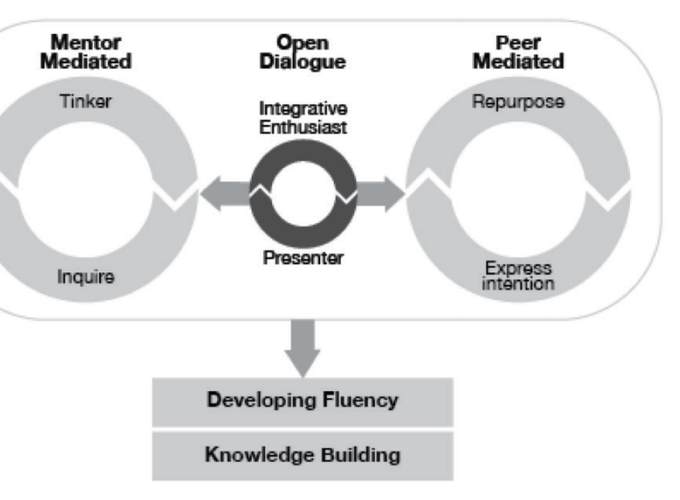Toward a making community of practice: The social aspects of elementary classroom-based making

Toward a making community of practice: The social aspects of elementary classroom-based making
Abstract
As Making moves from informal settings, such as museums and libraries to formal learning contexts, such as the classroom, questions arise with regard to the sustainability of the practice of Making. Learning in the classroom is continuous over time, while the integration of Making currently tend to be necessarily insular and in snapshot interventions. The development of a Making community of practice among students in the classroom is important for classroom-based Making to be sustainable. Grounded in literature on Lave and Wenger’s communities of practice and Vygotsky’s zone of proximal development, the work presented in this paper investigate the social aspects of Making in 5th grade science classes as indicators of the possible formation of a Making community of practice among the students. Our findings elicited different types of social roles that the students adopted, and various ways by which learning was socially mediated, and showed how help received and given varied according to student roles and over time. We discuss and conclude with the importance of pursuing further research into this topic area for Making into the classroom.